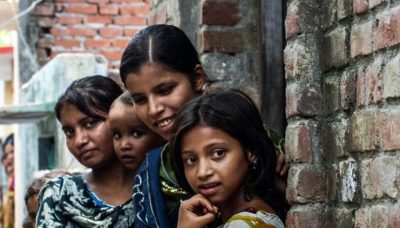Poverty in India: Providing Schools for the Most Marginalized Children in Remote Villages in Uttar Pradesh

All Global Research articles can be read in 51 languages by activating the Translate Website button below the author’s name.
To receive Global Research’s Daily Newsletter (selected articles), click here.
Click the share button above to email/forward this article to your friends and colleagues. Follow us on Instagram and Twitter and subscribe to our Telegram Channel. Feel free to repost and share widely Global Research articles.
***
Global Research’s Editor Note
The Modi BJP government remains committed to the Neoliberal Agenda and the Washington Consensus which in the course of the last 30 years has resulted in mass poverty, including austerity measures directed against health and education.
These policies (supported by the World Bank) –which have been conducive to marginalization and increased levels of poverty were initiated in the early 1990s under the helm of finance minister (and former prime minister) Manmohan Singh. Since the advent of Narendra Modi‘s BJP government, education and health programs have deteriorated, particularly in rural areas.
The BJP’s economic policy has been to promote privatization as well as foreign investment, with the support of USAID and the World Bank. The funds dedicated to poverty-alleviation have been significantly reduced.
The article by Bharat Dogra documents and analyses the response of impoverished rural communities to the failures of the neoliberal policy agenda.
Michel Chossudovsky, September 18, 2023
Rajaram Ka Purva is a remote rural hamlet in Banda district of Uttar Pradesh inhabited by the poorest of the poor. Almost none of the children in this hamlet are able to go to school. The reasons relate to poverty, distance of the nearest school as well as the unsafe path to school.
Till these difficulties can be sorted out and the children here can go to a regular school, a local country organization of this district Vidya Dham Samiti has started an informal school so that at least some teaching can be done and the children are not completely unprepared when they are finally able to attend a regular school.
The teaching here is done by a youth of the same settlement, the only one from the entire settlement who could reach high school. Even this very modest effort of education has earned the gratitude of parents and brought much joy to children who were delighted to celebrate the Independence Day for the first time this year.
There are several remote rural hamlets in this Bundelkhand region (as well in other parts of the country with high poverty rate) where a significant number of children are unable to attend school due to several factors. Then there are other hamlets where the number of children who drop out is very high, one contributing factor being migrant labor.
This is the situation in quite a few rural hamlets in the work area of Vidya Dham Samiti in Banda district.
This voluntary organization has started organizing special schools for such hamlets, roughly for about two hours in a day, aimed at imparting at least some education so that children can get admission to some government school sooner or later. The teaching is done by a volunteer from the community to whom a token amount is given by way of encouragement. There is also a plan to add a nutrition component if funds can be raised. Similar efforts can be considered for other areas where the need for such schools exists at least among certain sections comprising the most marginalized households. Socially conscious citizens can come forward to support such efforts.
Support for these schools essentially consists of two components—a minimum of Indian Rs. or INR 1500 per month for the encouragement amount to be given to the volunteer teacher per school and a minimum of INR 5000 per month for nutrition support for children per school (if nutrition support is added).
If this pattern is to be followed then such an informal school can be supported with an annual minimum sum of INR 18,000. On the other hand, if nutrition support is included then the total annual requirement goes up to INR 78,000. In this framework the community is expected to create or provide a shelter for the school with its own efforts.
Socially conscious citizens can consider supporting such efforts for the education of the poorest sections in their own area. They should initiate such efforts by taking the help of any honest voluntary organization, preferably with some experience in such matters.
However those citizens who are interested in such a supportive role but do not have the contacts for this can get in touch with this writer at [email protected] to get such contacts. Please do not send any money to this writer; his role is confined merely to guiding you towards such contacts who can take up this work.
*
Note to readers: Please click the share button above. Follow us on Instagram and Twitter and subscribe to our Telegram Channel. Feel free to repost and share widely Global Research articles.
Bharat Dogra is Honorary Convener, Campaign to Save Earth Now. His recent books include Man over Machine, When the Two Streams Met and A Day in 2071.
Featured image: The Annual Status of Education Report (Rural) 2016 report suggests that girls out of school in UP is almost double of all-India figuresof 5.2%.(Getty Images)

